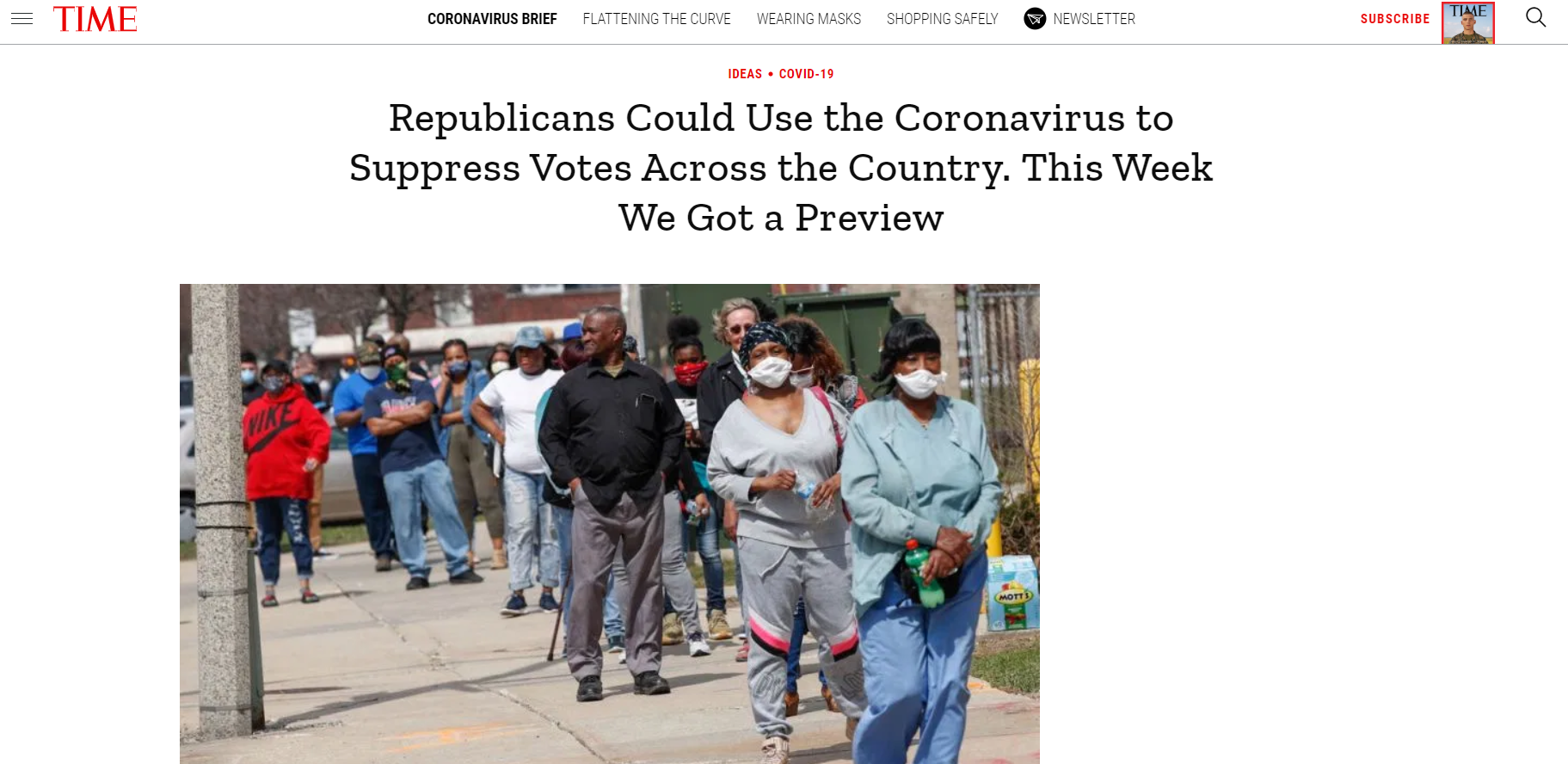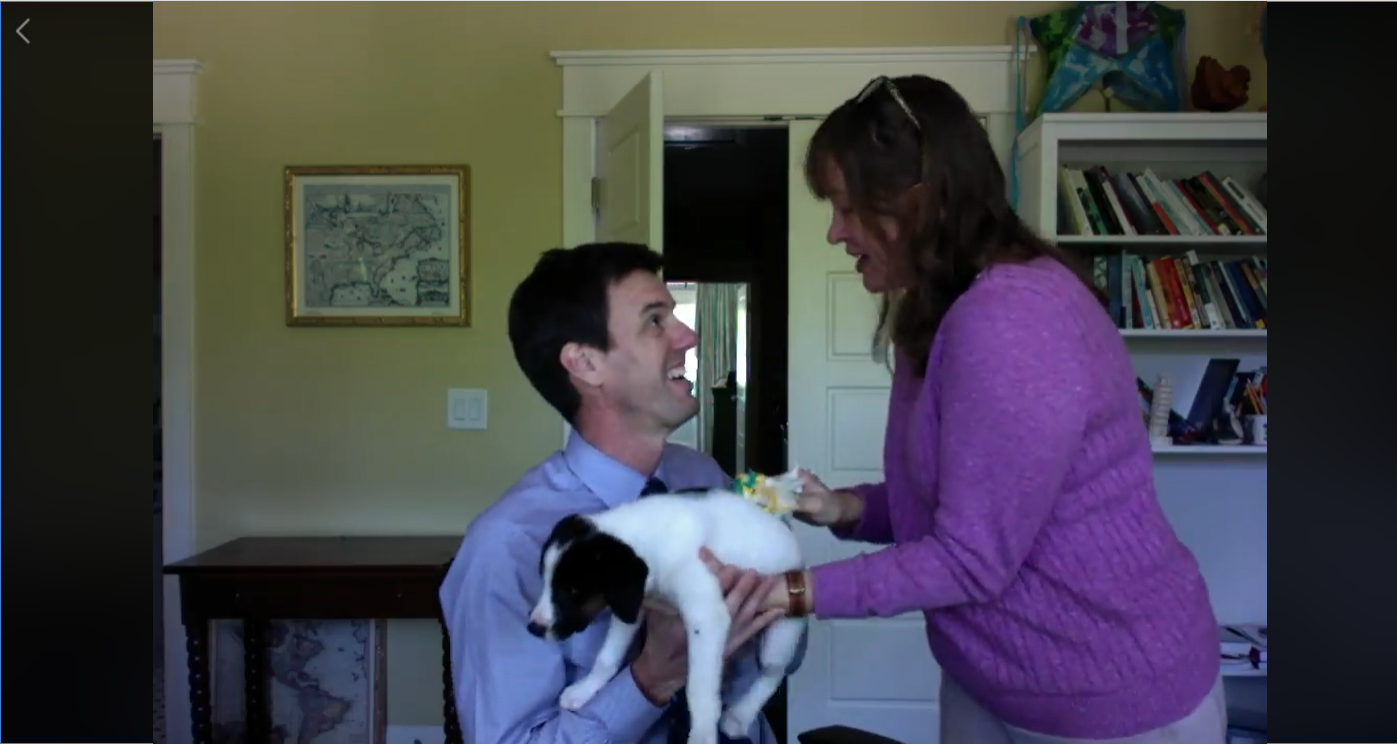History Department Chair and Jimmy Carter Professor of History Joseph Crespino recently took to Facebook to offer a few thoughts on productivity in the midst of the COVID-19 pandemic. Enjoy his “tips” on the Emory History Facebook page.
Month / April 2020
Addressing Anti-Asian Racism and COVID-19: A Discussion with Dr. Chris Suh and APIDA

The Asian Pacific Islander Desi American (APIDA) Activists at Emory have invited Assistant Professor Chris Suh to join them for a discussion forum on anti-Asian racism and COVID-19. The event will take place this Wednesday, April 15, from 7 – 8pm. The Zoom link to the discussion is available on the APIDA facebook site.
History Major Ellie Coe Receives 2020 ECLC Excellence in Language Studies Award in Russian
Congratulations to history major Ellie Coe, the recipient of the 2020 ECLC Excellence in Language Studies Award in Russian. Last year, Coe received a Clio Prize for Best Research Paper in a Freshman Seminar for her work, “A Mythic Spaceman: The Cultural Influence of Yuri Gagarin.” Below, the Emory College Language Center offers details on Coe’s work and the award:
Coe is a second-year studying History and Russian & East European Studies. She first began learning Russian in high school under the tutelage of a private teacher, and immediately fell in love with the language and culture. Through her Russian language classes at Emory, Ellie has discovered a passion for Russian poetry of the early 20th century; her favorite Russian writer is Vladimir Mayakovsky. Specializing in Soviet history, Ellie is interested in studying the Soviet space program, which launched the first man into space in 1961. In October 2019, she was able to put her Russian skills to use when she interviewed five cosmonauts at NASA’s Johnson Space Center for an independent research project. Ellie is grateful to her professors Dr. Elena Glazov-Corrigan, Dr. Juliette Stapanian-Apkarian, and Dr. Matthew Payne for encouraging her to follow her passion!
Undergraduate Senior Prizes for 2019-20
The Emory History Department Undergraduate Committee is pleased to announce the recipients of the History Department’s Undergraduate Senior Prizes for 2019-2020:
George P. Cuttino Prize for the Best Record in European History: Hannah Mariska Fuller
James Z. Rabun Prize for the Best Record in American History: Isaiah Simon Sirois
The Latin America & Non-Western World Prize for Best Record in Latin America & Non-Western World History: Kate Elizabeth Sandlin
Matthew A. Carter Citizen-Scholar Award: Yazmina Adi Sarieh
These awards will be presented at the Senior Celebration on Wednesday, April 29, 2:00 – 3:30 pm via Zoom (details to follow). Read more about each of these prizes, including previous years’ winners, at Senior Prizes.
Alumni Update: Hyeok Hweon “H.H.” Kang (13C)
Following his graduation from Emory in 2013, former History major Hyeok Hweon “H.H.” Kang went to Harvard for graduate school in Korean and East Asian History. Kang is currently putting the finishing touches on his dissertation, “Crafting Knowledge: Artisan, Officer, and the Culture of Making in Late Chosŏn Korea, 1592–1910.” Starting in the fall, he will be a D. Kim Foundation for History of Science and Technology Postdoctoral Fellow in the Department of the History of Science and Technology at Johns Hopkins University. After his postdoc, Kang will join the Department of East Asian Languages and Cultures at Washington University in St. Louis as an assistant professor. Congratulations, H.H.!
History Major and Fox Fellow Drew Bryant (20C) Discusses Research on International Activist Movement
Senior history major Drew Bryant is a 2019-20 Fox Center Humanities Honors Fellow. Bryant recently contributed a blog post on the Fox Center for the Humanities website about her honors project on the international activist movement in the 1990s. That movement sought to utilize the International Criminal Court (ICC) as a vehicle towards protecting women’s human rights. Read an excerpt from her post below, along with the full piece: “International Activism and the Women’s Human Rights Movement: 1990-2000.”
My project explores how activists emphasized the overarching problem of violence against women, which served as an issue which could unite women around a global women’s human rights agenda despite the varying interests of women transnationally. Moreover, activist awareness-building regarding the issue of violence against women served as a platform upon which other issues facing women could be introduced into the human rights framework, such as those related to reproductive freedom.
Strocchia’s FYS, ‘Epidemics in History,’ Brings Historical Insights to Unfolding Pandemic
Dr. Sharon T. Strocchia, Professor of History, is teaching a first-year seminar titled “Epidemics in History” this spring. The COVID-19 pandemic has made the course far more timely than she or the students anticipated. The Emory News Center featured “Epidemics in History” among Emory courses where professors and students are using the pandemic as a learning opportunity. Read about all of those courses in their article, “COVID-19 in Class.” Strocchia also offered comments on her original idea for the class and how she modified it in order to investigate this historical moment in real time. Read her comments below.
My freshman seminar this semester, “Epidemics in History,” was not designed to coincide with a global pandemic. I did plan to end the course with a study of the 1918 influenza epidemic after examining the Black Death and nineteenth-century cholera outbreaks. Our goal was to explore the historical and biological effects of urbanization, environmental change, and the human connectivity resulting from faster modes of transportation. But I also wanted to raise issues of preparedness with my students, many of who planned careers in medicine and science. It seemed oddly serendipitous that the Wuhan outbreak of coronavirus hit the headlines just as spring semester started. At our first class meeting in January, we decided that tracking its progression would make a good class project. Relying on trusted news outlets, we learned the value of social distancing, good hand hygiene, and flattening the curve. Week by week, the news grew more startling but still seemed far from home. By the time spring break arrived, though, COVID-19 already had an official name and the world was on the verge of pandemic. We’ve since modified our syllabus to make direct comparisons between the experiences of 1918 and our own day, looking at public health policies, frontline healers, issues of fear and resilience. It’s been a rewarding but sobering experience—one that shows there’s much to be learned about health and society from studying the past.
– Sharon Strocchia
Dr. Polly J. Price, Associated Faculty in History, Discusses Jurisdiction and COVID-19 on CNN
Dr. Polly J. Price is the Asa Griggs Candler Professor of Law, Professor of Global Health, and Associated Faculty in the History Department. Price recently contributed to a CNN segment with host Michael A. Smerconish about jurisdiction in the context of stay-at-home orders and social distancing measures intended to curb the spread of COVID-19. View the segment here: “Why is there no national lockdown?”
Price is a public health law scholar as well as a legal historian and citizenship and immigration law expert. Her current book project, Plagues in the Nation (forthcoming from Beacon Press), examines how epidemics have shaped US law and continue to pose challenges for disease control in democratic societies. In recent weeks Price has also authored two pieces for The Atlantic: “A Coronavirus Quarantine in America Could Be a Giant Legal Mess” and “How a Fragmented Country Fights a Pandemic.”
Carol Anderson on COVID-19 and Voter Suppression in ‘Time’

Dr. Carol Anderson, Charles Howard Candler Professor of African American Studies and Associated Faculty in the History Department, has written an article in Time titled “Republicans Could Use the Coronavirus to Suppress Votes Across the Country. This Week We Got a Preview.” Anderson’s piece examines how stay-at-home orders prompted by COVID-19 could lead to the disenfranchisement of voters in primary elections and may portend the same for the general election in November. Anderson is the author, most recently, of One Person, No Vote: How Voter Suppression is Destroying Our Democracy, which was published by Bloomsbury and a finalist for the PEN/Galbraith Award in Non-fiction and a National Book Award Longlist finalist in Non-fiction.
Ashley Parcells (PhD, ’18) Receives NEH Summer Stipend
Dr. Ashley Parcells, Assistant Professor of History at Jacksonville State University, has received a Summer Stipend from the National Endowment for the Humanities. The support will allow Parcells to complete interviews and two chapters for a book on apartheid and sovereignty in KwaZulu, South Africa. Her project is titled “Ethnicity, State-Building, and the Making of Apartheid, ca. 1951 to 1994.” Parcells completed her doctorate in 2018, with Dr. Clifton Crais, Professor and Director of the Institute of African Studies, serving as her primary dissertation adviser.
